Banner photo: Over 250 tubestock planted along the Mulwaree River during the workshop
It was a windy and bitterly cold day on Saturday the 20th of May in Tirrannaville, but 30 wonderful souls braved the weather to attend our Tubestock planting for riparian restoration workshop hosted by the Gibson family in the Goulburn area. We heard talks from Angus and AJ Gibson on their 30 plus years of experience of restoration plantings, and from Rivers of Carbon’s Lori Gould on the benefits of riparian vegetation. AJ talked about the benefits of undertaking river restoration, including improved livestock weight gains through better water quality, increases in beneficial insects and improved biodiversity. Lori gave a demonstration on how to plant tubestock and to end the day, we planted over 250 tubestock along the Mulwaree River.
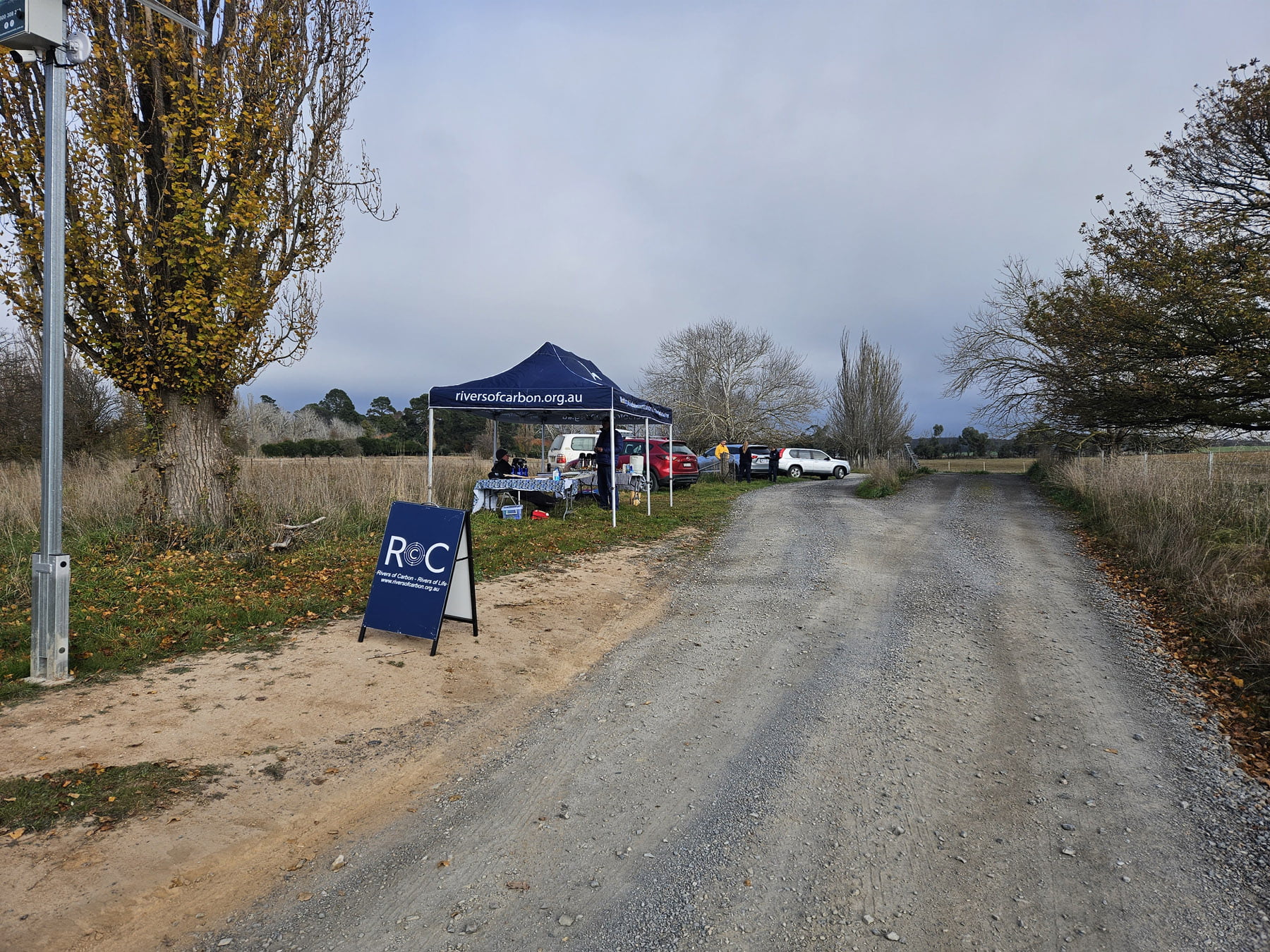
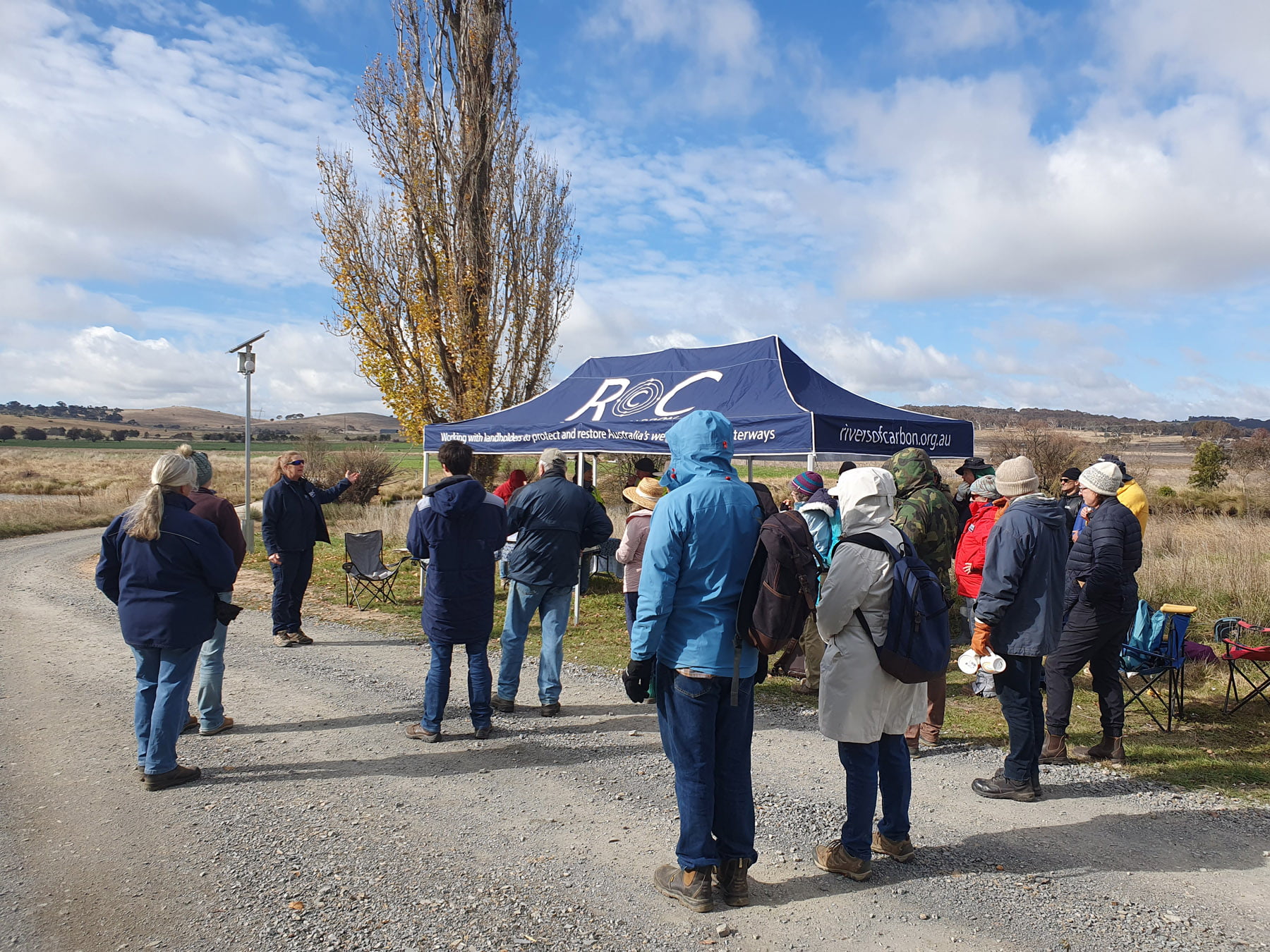
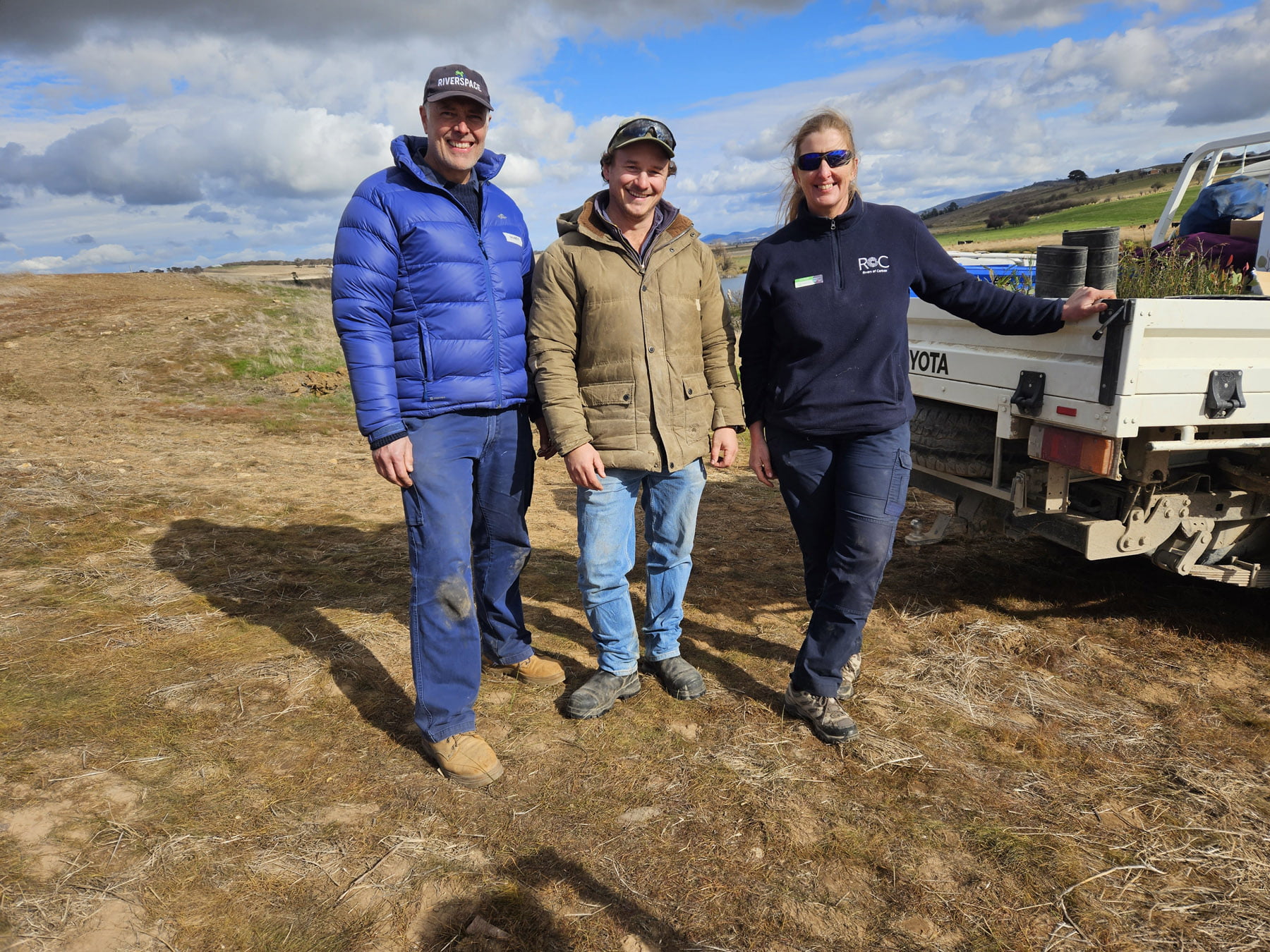
One of our volunteers, Heather, gave us this wonderful feedback about the day:
‘Thanks for a terrific workshop at the Gibson’s farm in May. The organisation was excellent, everything was ready to go, there was adequate time to talk to folk between activities, a clean easily accessed toilet is always a bonus and the food was delicious. I really appreciated the story that the farmers shared, it was quite inspirational, it helped me gain a deeper understanding of the long-term challenges and flexibility required to rejuvenate the landscape. This event for me was a great reminder of what is being achieved and the wonderful community of people working together to rehabilitate our rivers.’
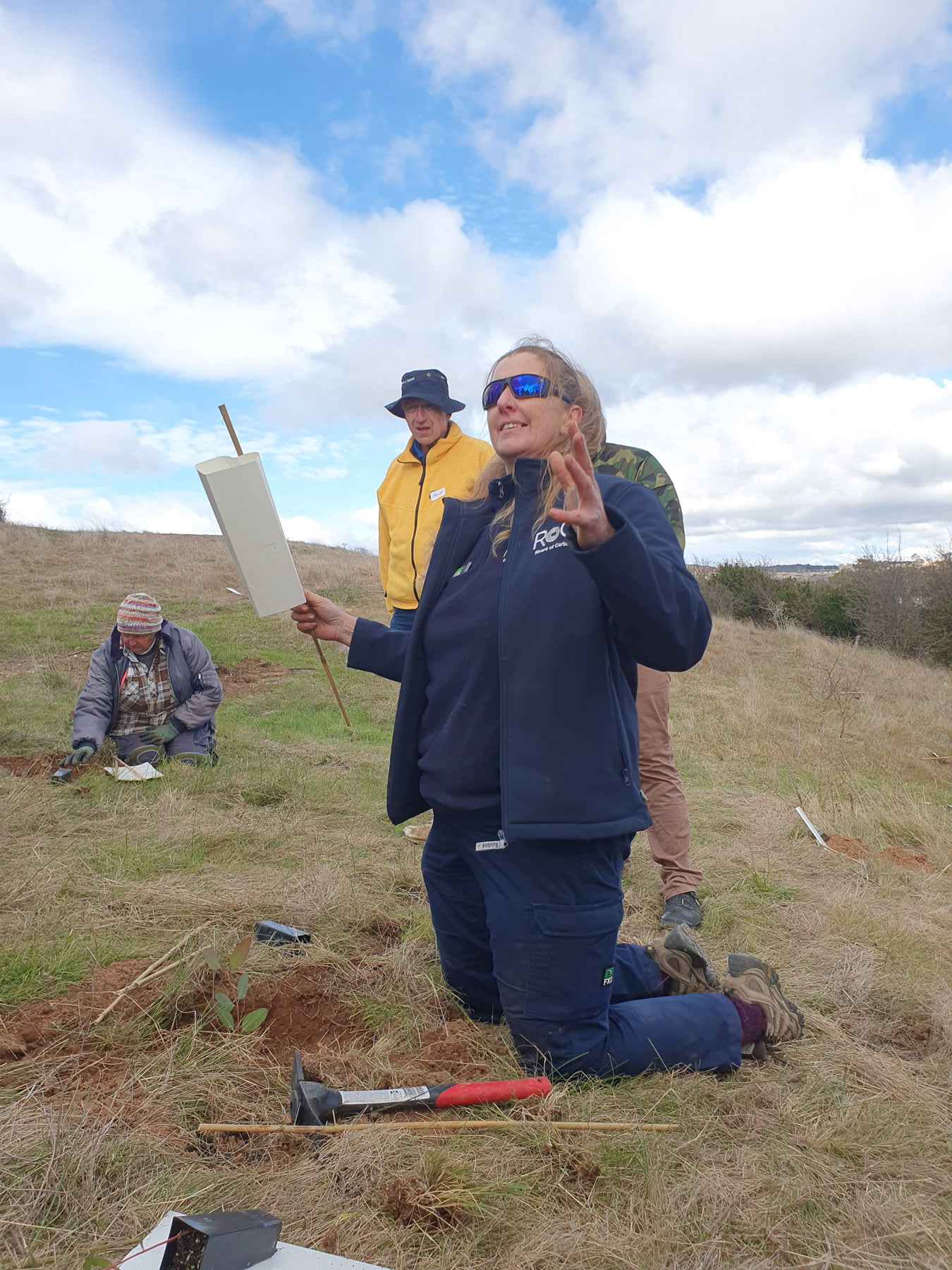
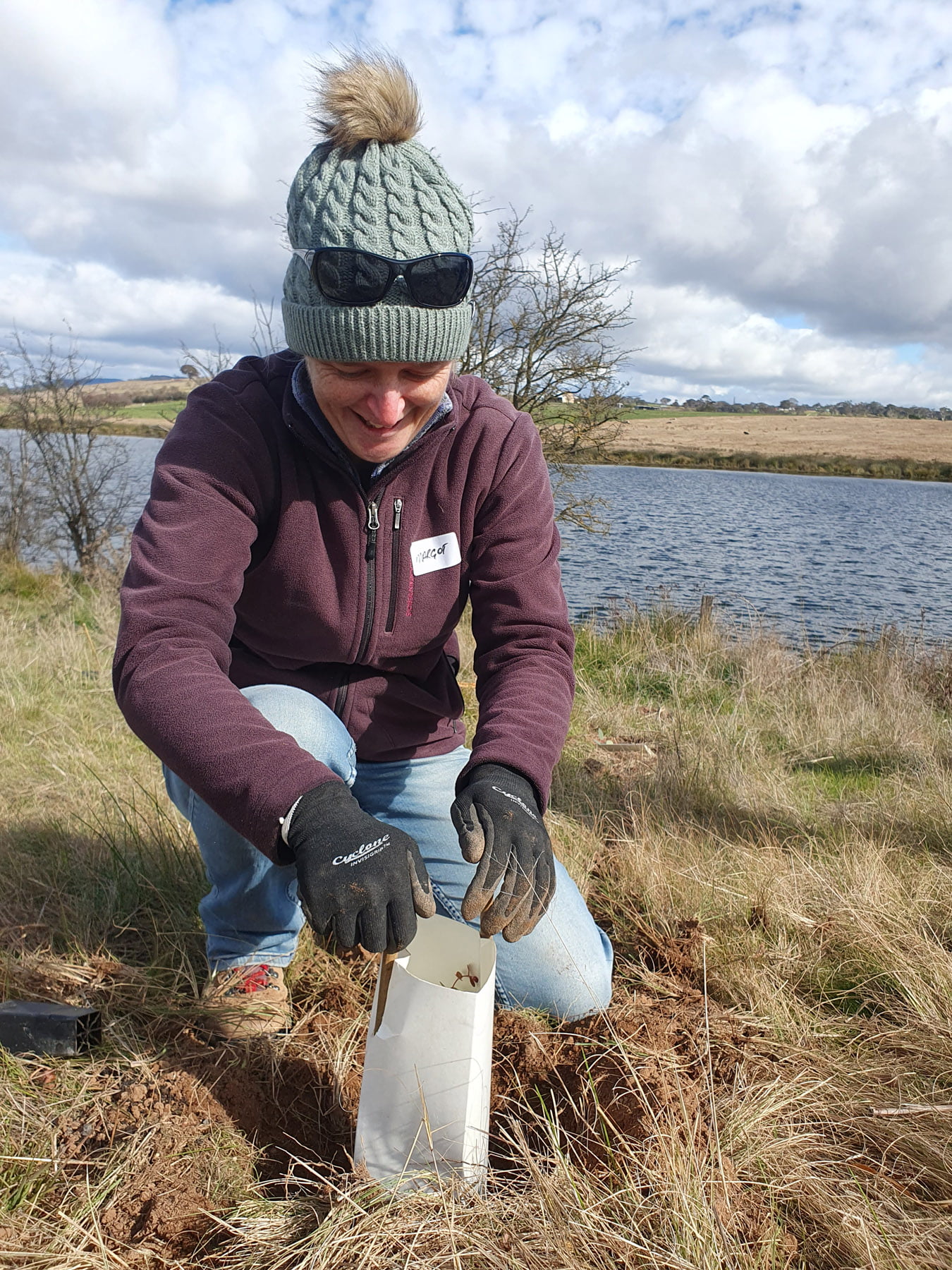
AJ and Angus have a lot of knowledge about rehabilitating rivers, these are the key points they shared with us:
- Use a range of native plants from a local supplier, choose a variety of species including, ground covers, shrubs, wattles and trees.
- Take photographic records from the same location to track your progress. Recording what you plant can help guide future revegetation efforts.
- Don’t be afraid to start, pick the easiest area to begin.
- Over the years the Gibson’s trialed different fertilisers and water crystals when planting, they found that the establishment of tubestock is as good without these ameliorants. Once the plants start to establish the weed burden will diminish over time.
- Fencing the river has multiple benefits including, better water quality for livestock, efficient fencing for stock rotations and improved water quality for other river users. The vegetation buffer also provides breeding areas for insects that are beneficial in cropping rotations.
The workshop was an inspiring reminder of what can be achieved for our rivers. We left feeling motivated knowing there are wonderful people who share a sense of responsibility in caring for our waterways and environment. As Alfie Walker from the Pejar Local Aboriginal Land Council said in his Welcome to Country, caring for the land is a shared responsibility. This type of work makes it possible for many people to contribute to improving river health.
Angus and AJ have been supported in their efforts to restore the riparian area along the Mulwaree River with funding from WaterNSW as part of the Source Water Linkages Program.
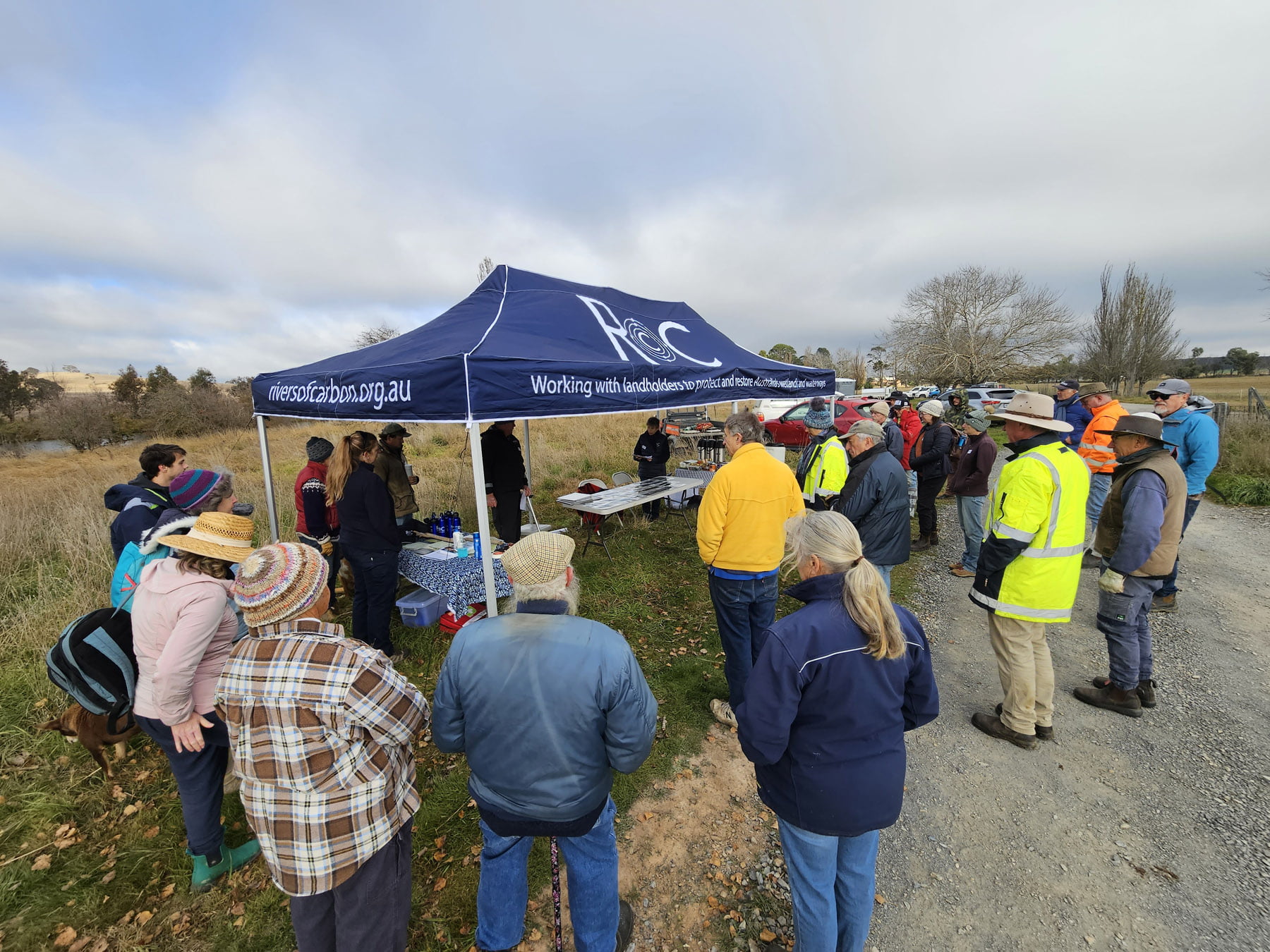
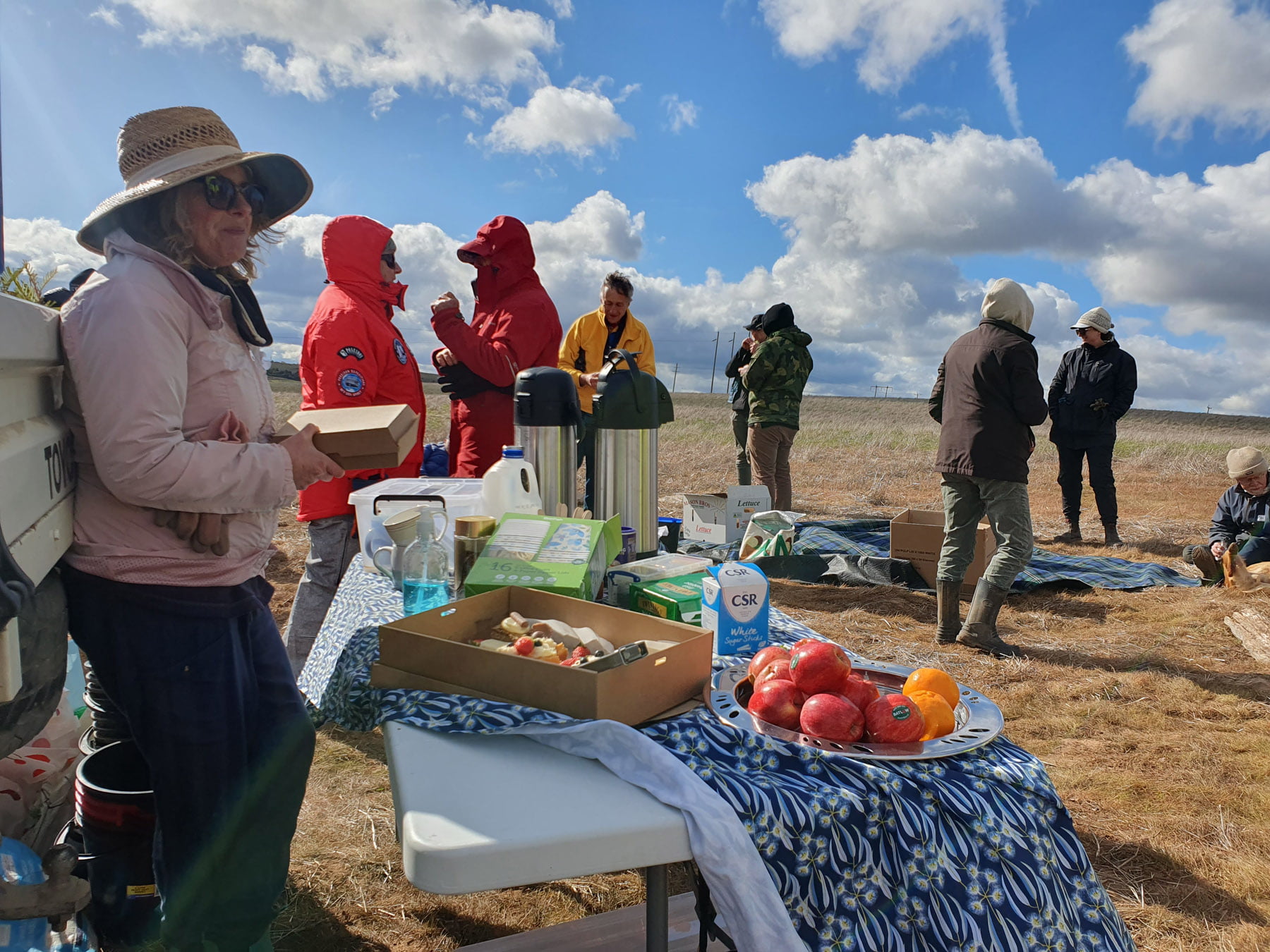
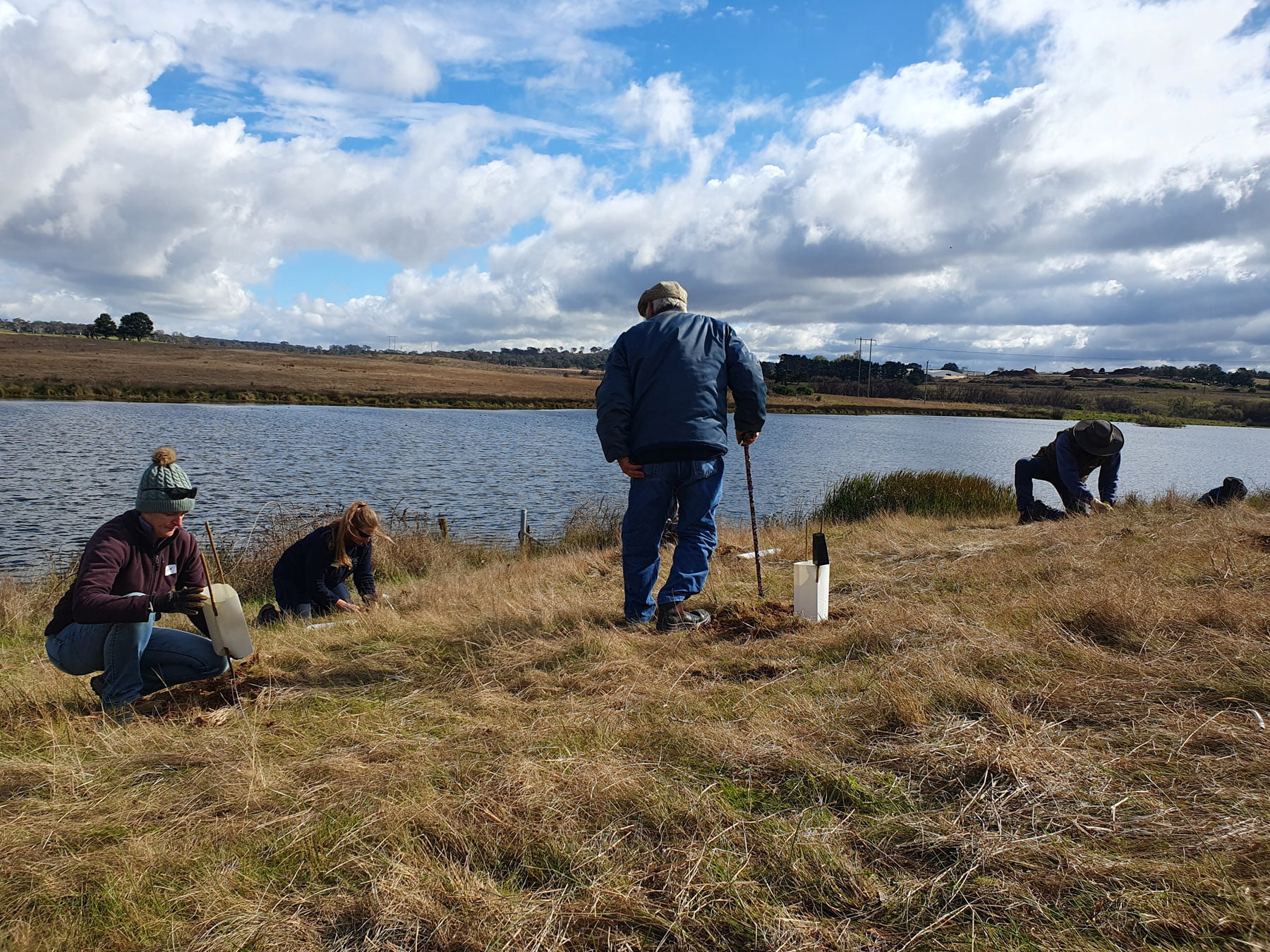
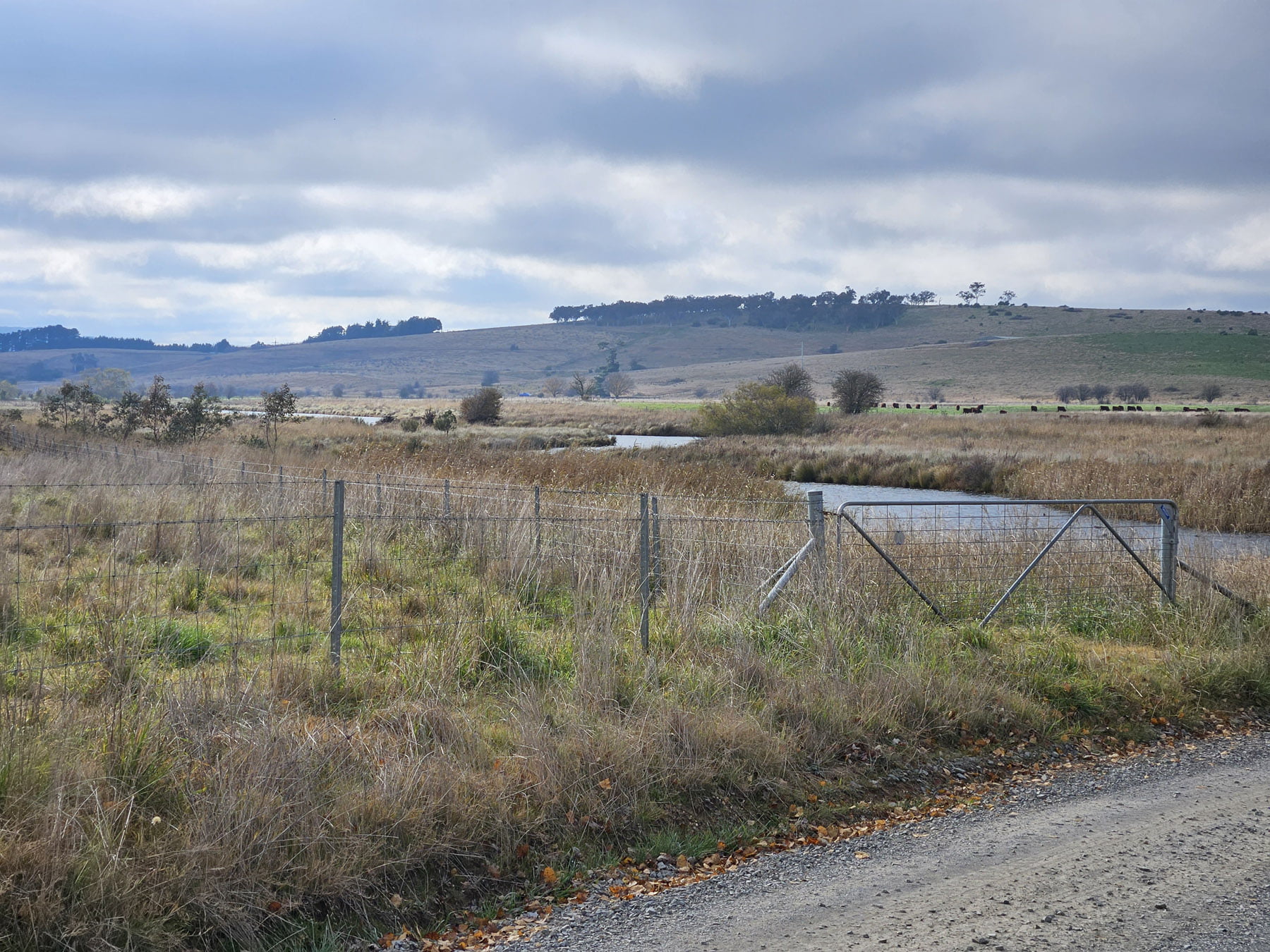
Photo credits: Alex James and Matt Morrison
Rivers of Carbon – Source Water Linkages is being funded through our partnership with WaterNSW. We also work closely with South-east Local Land Services who offer support for broader landscape and erosion issues through their Rural Landscapes Program.
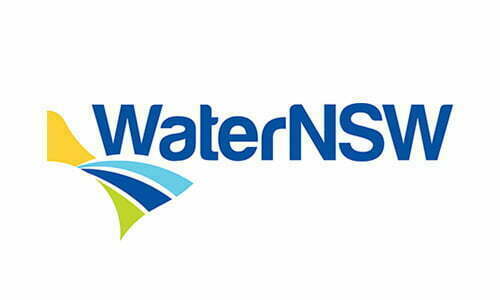

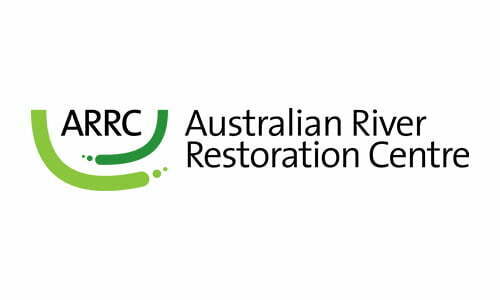
Join Rivers of Carbon – Source Water Linkages
Our Sydney Source Water Linkages Program is looking to partner with landholders that manage livestock. If your property is within the select regions, please contact Lori or Izzy to discuss how we can work together.
For more information, please download the program brochure.
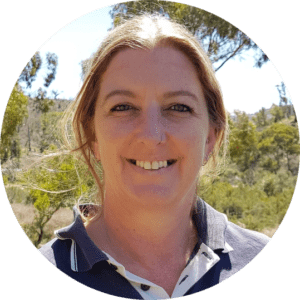 Lori Gould
Lori GouldProgram Manager
Phone: 0439 030 058
lori.gould@arrc.com.au
If you prefer, you can complete the form below and we will give you a call: